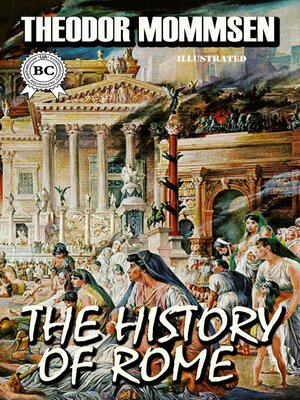
Sign up to save your library
With an OverDrive account, you can save your favorite libraries for at-a-glance information about availability. Find out more about OverDrive accounts.
Find this title in Libby, the library reading app by OverDrive.



Search for a digital library with this title
Title found at these libraries:
| Library Name | Distance |
|---|---|
| Loading... |
In 1902 Mommsen was awarded the Nobel Prize for Literature and acclaimed as 'the greatest living master of the art of historical writing'. Mommsen rejected traditional Enlightenment accounts, which glorified ancient Rome; instead, guided by a new and rigorous criticism of sources, Mommsen began the demythologisation of Roman history. In a vivacious and engaging style, Mommsen drew bold parallels between the nineteenth century and classical Rome. Mommsen wrote his history with the pressing political and national issues facing both pre-unification Germany and the rest of the mid-nineteenth century Europe directly in mind.
With exceptions, Mommsen in his Römische Geschichte (1854–1856) narrates a straight chronology of historic events and circumstances. Often strongly worded, he carefully describes the political acts taken by the protagonists, demonstrates the immediate results, draws implications for the future, while shedding light on the evolving society that surround them. The chronology of the contents of his five 'books' (in his first three volumes) are in brief:
Book I, Roman origins and the Monarchy;
Book II, the Republic until the Union of Italy;
Book III, the Punic Wars and the East;
Book IV, the Gracchi, Marius, Drusus, and Sulla;
Book V, the Civil Wars and Julius Caesar.







